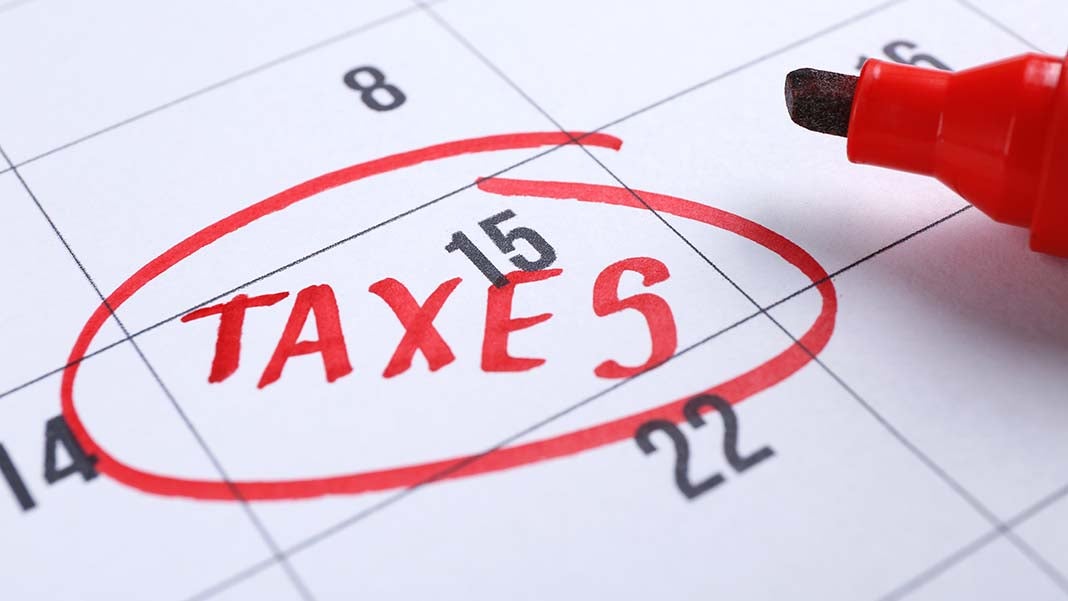Best Tax Tips for Small Business Owners in 2018
By: Steve Orowitz

Doing your taxes is not something people typically look forward to. In fact, if the word “taxes” is even muttered, you can usually expect an audible “ugh” to follow.
Whether you’re a small business owner, first-time freelancer, or simply self-employed, you have to handle your own taxes. And we all know filing your taxes can be somewhat tricky territory if you’re not well-versed in tax rules and general tax tips.
However, it’s paramount that you do seek out tax tips, because knowing the gist about filing your taxes can definitely benefit you in the long run. It’d be a shame to pay more taxes or fees than you need to, right?
Well, luckily, you’ve already made one smart decision when you decided to visit this website. Now, it’s time to see how to make taxes work for you as a small business owner, not against you.
General Tax Tips & Info
We’re going to start by first outlining some of the general tax tips everyone should know. As a small business owner, these are just the basis of what you’ll need to know when doing your taxes, but it’s a great place to start.
Tax Deadlines
If you want to keep the IRS off your tail, the first thing you should do is fill out your calendar will all the tax deadlines that apply to you. By sticking to these deadlines, you won’t need to pay penalties when you file your annual return. Here are the important tax dates to remember as a profitable small business owner, depending on the type of business you run:
- Partnerships & S-Corporations: March 15
- C-Corporations and Individuals: April 17
- Exempt Organizations: May 15
Additionally, it would be wise to know your quarterly filing dates, as many companies are advised to pay taxes quarterly instead of one-time annually.
- First Quarter: April 18
- Second Quarter: June 15
- Third Quarter: September 15
- Fourth Quarter: December 15
You can view the full list of federal due dates by month here, or, if you operate on a fiscal calendar, you can see when deadlines are in relation to your fiscal year.
Tax Extensions
Now, the IRS does not take late payments lightly, but should you need an extension on your tax filing deadline, you are able to request an automatic six-month extension. This will push your filing (not paying) deadline to either September 17 for partnerships and S-corps or October 15 for C-corps and individuals.
Extending your tax filing due date is intended to allow you and/or the person preparing your taxes to have all the materials ready for best filing efficiency.
Luckily, the IRS does allow you to automatically download the tax calendar to your scheduling app of choice (such as Outlook, Google Calendar, etc.) so you can be reminded of the above important dates as they come up.
Tax-Deferred Retirement Plans
If you’re looking for another way to lower your taxes, you may want to consider opening a tax-deferred retirement plan. Not only will contributing to a retirement plan be a better move for your business’s taxes in the long-run, but you’ll also have a retirement savings fund to dip into when you’re nearing the end of your work-life.
Not sure what a tax-deferred retirement plan is? The Balance defines it as this: “Tax-deferred savings occurs when you use a specially designated account, or investment option, that does not require you to claim the investment income earned inside of the account every year on your tax return. Instead, you get to defer this investment income until you choose to take a withdrawal from the tax-deferred savings account or until you cash in the investment.”
Click here to read more on tax returns
So, basically, if you invest $1,000 in your retirement account, and that account accrues 5% interest over the year, you won’t have to claim that extra $50 in your filing. The $1,050 will then work towards accruing interest as time goes on, so it’s almost like you are getting a little extra tax-free income.
These types of plans are best-suited for businesses that are in high tax brackets now and believe they will be in lower brackets in the future when they’ll be making withdrawals. Calculate your tax bracket here. The more time you let the money sit, the more interest it will accumulate.
Types of Tax-Deferred Investment Accounts
- Traditional IRAs
- 401(k)s, 401(b)s, and 457 accounts—these are employer-sponsored plans
- Roth IRAs
10 Small Business Tax Deductions
Alright, now we’re onto the fun part: deductions! Tax deductions allow you to pay less for business-related expenses as long as they are properly documented and supported. Below are some of the most common and advisable tax deductions for small business owners such as yourself.
- Auto Expenses: Keep documents of business-related mileage, usage, and maintenance costs to properly claim deductions on your vehicle.
- Wages & Salaries: While what you pay yourself as either a sole proprietor, partner or LLC member is not deductible, what you pay employees IS tax-deductible.
- Rented Property: The rent cost of an office, factory, or storefront space is fully deductible.
- Utilities: Facility electricity, WiFi, cell phone bills, and the like are all deductible costs.
- Supplies: Any items and supplies needed for your business (such as cleaning supplies if you own a cleaning service) are fully deductible.
- Insurance: Your malpractice coverage, business owner’s policy, and business continuation insurance are all deductible, but there are additional rules and nuances if you are seeking deductions on health insurance and you are self-employed.
- Entertainment: As long as a business meal/entertainment either immediately follows a meeting or takes place in a professional atmosphere (such as at a convention), you are able to deduct up to 50% of the cost to mix work and play.
- Advertising: Ordinary advertising costs are fully deductible.
- Travel: If you or an employee needs to leave town on business, transportation and lodging costs are fully deductible. Here is a chart of the travel-related deductions you can claim.
- Home Office: If your primary place of business is at home instead of a rented space, you are then able to deduct certain portions of your home insurance, utility, and rent costs.
There are additional deductible costs for small business owners, depending on the type of company you own, but these 10 deductions should give you a great start.
When it comes to taxes, the more you know, the better. Even if it’s boring, it pays to stay on top of tax information!
Just set reminder for your tax filing deadlines and work to understand the most important tax tips (such as those outlined above), and you will be able to save a lot of money on your taxes. Learning these tax rules will ultimately help your small business continue to grow.
5294 Views














